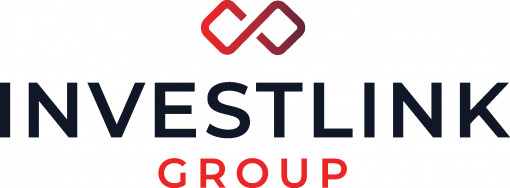Who can investors trust?
Trust can be tested in many ways.
Consider this situation. You are sitting at a conference with 1000 or so industry colleagues – effectively professional strangers – and you are asked to unlock your mobile phone and hand it to the person sitting next to you. They have 30 seconds to do whatever they like with it...

That was the trust test posed by author and academic Rachel Botsman to attendees at a superannuation conference at the end of November.
Smart phones have become such an integral part of our lives; how we shop, bank and interact with friends that they have become much more than a telecommunication device. They are by the nature of how we use them – and the personal information involved - intrinsically personal.
In the context of a professional industry conference a few people pretended to have mysteriously misplaced their phone but the majority played along and handed over their phones – but the feelings of anxiety and discomfort were palpable in the room.
Would you hand over your phone to a stranger? Perhaps not.
How about rent the spare room in your house to a complete stranger?
Or leave that much loved pet with another stranger?
Botsman's presentation on Trust, technology and human relationships delves into the way trust is evolving and developing in ways that a few short years ago were unimaginable.
Airbnb is now the second most valuable hospitality company in the world and is valued at more than $US30 billion yet it relies on the notion of people having enough trust to let a stranger in to share their house or, indeed, hand over the keys to the entire house for a period of time.
One of the key points Botsman – who splits her time between Sydney and London and teaches an MBA course on the collaborative economy at the University of Oxford – makes is that the big impact that technology is having on trust is enabling us to effectively outsource the trust decision.
Airbnb hosts can see reviews of guests by other hosts before they accept the booking, we can look at a driver's rating on Uber before booking the ride so it is that ability to get a trustworthy rating almost in real time that has powered the adoption of much of the new sharing economy.
Botsman's research highlights how in the "gig economy" we are increasingly outsourcing the trust decision effectively to algorithms and the experience of strangers rather than our own personal experience.
In time, Botsman argues, we may end up with a personal "trust rating" much the way we have a creditworthiness rating today.
Trust is a topical conversation within the superannuation industry and the broader financial services industry. Clearly lots of consumers have lost trust in major financial institutions – in particular major banks - hence the recent acceptance that a royal commission is needed to clear the air.
While superannuation is a mandatory system investors need confidence that the system is doing everything it can to maximise the value to super fund members when they finally hit retirement age.
Investors particularly need to have trust in the system if they are going to make additional voluntary contributions.
Financial advisers clearly hold a position of trust with their clients and Vanguard recently published a research white paper on trust and financial advice.
The objective of the research was to better understand trust in a financial advisory setting and the various components of trust and what leads to a breakdown of trust.
Now some critics of financial advisers in Australia will point to the scandals in the financial advice industry in recent years that destroyed a lot of trust in the industry and at least partly drove the political push for a royal commission.
It is not surprising that surveys point to low levels of trust in the broader financial planning industry.
What fundamentally changes that perspective is when you research investors who have an existing relationship with an adviser. As a general rule existing clients give their financial adviser high ratings. The Vanguard research based on US investors/advisers suggests as many as 8 out of 10 investors give their advisers high ratings on a trust basis.
Products and investment markets are complex and ever-changing. So advised investors are accepting some level of vulnerability by trusting an adviser to help them achieve their financial life goals.
The three main categories the research identified and their relative weightings were:
-
functional factors – 17%
-
emotional factors – 57%
-
ethical factors – 30%
Emotional factors clearly played the largest role in establishing and maintaining a trusted relationship and the top two drivers of that were identified as being when advisers are the client's advocate and acting in the client's best interest.
While technology may well be giving us new ways to gauge and make decisions on who we trust, at the end of the day when it comes to financial advice, trust remains both a powerful and simple proposition.
Written by Robin Bowerman, Head of Market Strategy and Communications at Vanguard.
Source : Vanguard 6 December 2017
Reproduced with permission of Vanguard Investments Australia Ltd
Vanguard Investments Australia Ltd (ABN 72 072 881 086 / AFS Licence 227263) is the product issuer. We have not taken yours and your clients' circumstances into account when preparing this material so it may not be applicable to the particular situation you are considering. You should consider your circumstances and our Product Disclosure Statement (PDS) or Prospectus before making any investment decision. You can access our PDS or Prospectus online or by calling us. This material was prepared in good faith and we accept no liability for any errors or omissions. Past performance is not an indication of future performance.
© 2017 Vanguard Investments Australia Ltd. All rights reserved.
Important:
Any information provided by the author detailed above is separate and external to our business and our Licensee. Neither our business, nor our Licensee take any responsibility for any action or any service provided by the author.
Any links have been provided with permission for information purposes only and will take you to external websites, which are not connected to our company in any way. Note: Our company does not endorse and is not responsible for the accuracy of the contents/information contained within the linked site(s) accessible from this page.


